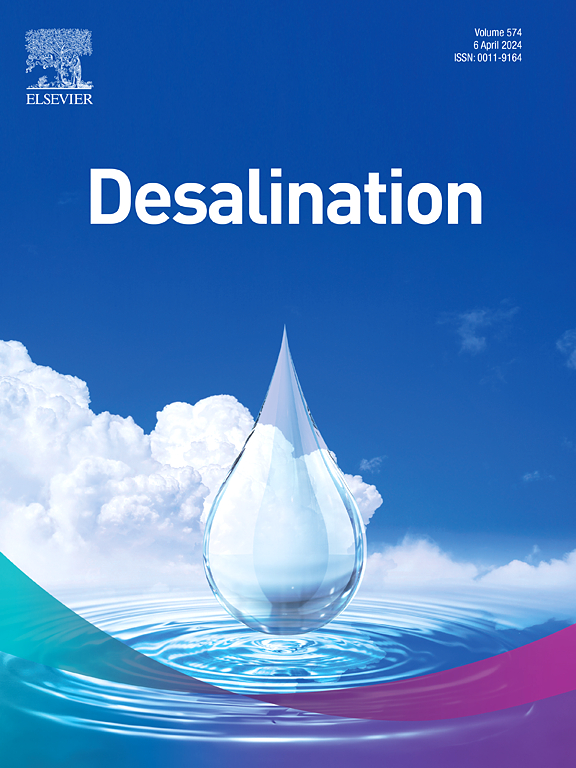Synthesis of doped titanium-based lithium adsorbents with excellent stability and adsorption performance by solid state reactions
IF 8.3
1区 工程技术
Q1 ENGINEERING, CHEMICAL
引用次数: 0
Abstract
Titanium-based lithium-ion sieves (LTO) are often employed for lithium recovery from solutions due to their high adsorption uptake. To further reduce the Ti dissolution loss rate and enhance the adsorption performance of LTO, metal-doping was conducted using solid-state reactions in this work, and the effects of incorporated metal elements and doping amounts were investigated. The results indicated that, the doping of 5 % tungsten (W), zirconium (Zr) or cerium (Ce) significantly reduces the titanium dissolution rate from 1.52 % (without doping) to 0.77 %, 1.1 %, and 1.17 % respectively, while the doping of iron (Fe) and molybdenum (Mo) increases the Ti dissolution rate. Simultaneously, the dissolution rates of W, Zr, and Ce (0.15 %, 0.27 %, and 0.66 %) are also significantly lower than those of Fe and Mo (14 % and 24 %). In addition to the record-breaking reduction in the titanium dissolution rate, W doping also substantially enhances the saturated adsorption capacity of lithium to 48 mg g−1 (at 30 °C), 1.37 times that of the undoped LTO (35 mg g−1), demonstrating great potential for lithium recovery.
通过固态反应合成具有优异稳定性和吸附性能的掺杂钛基锂吸附剂
钛基锂离子筛(LTO)具有很高的吸附吸收能力,经常被用于从溶液中回收锂。为了进一步降低钛的溶解损耗率并提高 LTO 的吸附性能,本研究利用固态反应进行了金属掺杂,并研究了掺入金属元素和掺杂量的影响。结果表明,掺杂 5 % 的钨(W)、锆(Zr)或铈(Ce)会显著降低钛的溶解率,分别从 1.52 %(未掺杂)降低到 0.77 %、1.1 % 和 1.17 %,而掺杂铁(Fe)和钼(Mo)则会提高钛的溶解率。同时,W、Zr 和 Ce(0.15 %、0.27 % 和 0.66 %)的溶解率也明显低于铁和钼(14 % 和 24 %)。除了破纪录地降低钛溶解速率外,掺杂 W 还大大提高了锂的饱和吸附容量,达到 48 mg g-1(30 °C),是未掺杂 LTO(35 mg g-1)的 1.37 倍,显示出锂回收的巨大潜力。
本文章由计算机程序翻译,如有差异,请以英文原文为准。
求助全文
约1分钟内获得全文
求助全文
来源期刊

Desalination
工程技术-工程:化工
CiteScore
14.60
自引率
20.20%
发文量
619
审稿时长
41 days
期刊介绍:
Desalination is a scholarly journal that focuses on the field of desalination materials, processes, and associated technologies. It encompasses a wide range of disciplines and aims to publish exceptional papers in this area.
The journal invites submissions that explicitly revolve around water desalting and its applications to various sources such as seawater, groundwater, and wastewater. It particularly encourages research on diverse desalination methods including thermal, membrane, sorption, and hybrid processes.
By providing a platform for innovative studies, Desalination aims to advance the understanding and development of desalination technologies, promoting sustainable solutions for water scarcity challenges.
 求助内容:
求助内容: 应助结果提醒方式:
应助结果提醒方式:


